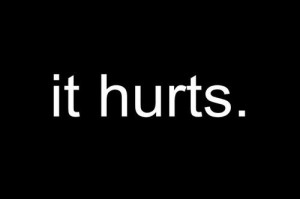
Deadly images on television tear at our heart. We wish for the violence in Israel to end.
This land, sacred to three global religions, seems endlessly mired in conflict. Does religion just promote division or hatred? Is it because of its religious significance that Israel remains a place of tension? Or is faith, at its core, a force of peace?
If we listen to most voices in the media and pop culture, we would answer this question without hesitation. Religion is bad, primitive, and dangerous.
We would agree with late writer Christopher Hitchens, who said “The Bible contains a warrant for trafficking in humans, for ethnic cleansing, for slavery, for bride-price, and for indiscriminate massacre.”
We would say religion needs to end before peace can begin. But the simple answer is usually wrong. Consider the following:
False assumption 1: Most wars are religious wars.
This argument is simply not true. The Encyclopedia of War (yes, it exists) says that of the 1763 wars, 123 have been caused by religion. That’s 6.98 percent. Hardly a primary cause.
To the contrary, history suggests that the most violent groups tend to be anti-religious. The most murderous regimes of the 20th century—Nazi Germany and Stalinist Russia—were explicitly anti-religion. They forbid traditional religious expression. They replaced it with politics and nationalism.
The religion of Nazi Germany was the state, and the religion of Stalinist Russia was socialism. Mao Tse-Tung in China and Pol Pot and Cambodia also disregarded their culture’s traditional faiths.
Religion puts a check on political power, and tyrannical regimes suppress it.
False assumption 2: Religion causes people to hate each other.
This argument has the advantage of having some validity. People have hated and killed others in the name of religion. They continue to do so today.
Yet, people also love in the name of religion. Just look at those who devote their lives to service. Just look at the social service agencies and hospitals established by different faiths.
[callout]If we say religion causes hate, we can equally say religion causes love.[/callout]
The truth is that, as the Jewish sages taught, we are all born with dual inclinations—to love and create, and to hate and destroy. At its best religion fosters the former and quells the latter.
False assumption 3: Religion divides us between believer and nonbeliever.
Once again this argument has some validity. Religion does draw lines between people. Some religions do so more starkly than others.
Speaking from the Judeo-Christian tradition, however, we can religion also presents a soaring vision of human equality. The opening chapter of the Bible tells us every human being is “created in the image of God.”
Without faith we might not arrive at this sublime truth. Nature favors the strong over the vulnerable. Politics favors the powerful over the weak. Faith makes us equally sacred before God.
Religion does not cause conflict. People do. And religion is the only force that has a prayer of stopping it.
Are You Christian? Get Your Free Jewish Holidays Cheat Sheet.

